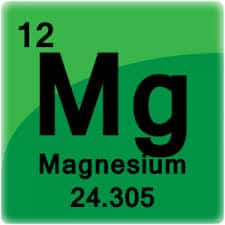How the Right Magnesium Supplement Can Help with Anxiety
Do you find yourself constantly on edge, plagued by feelings of restlessness and anxiety?
You’re not alone. In today’s fast-paced world, stress and anxiety have become all too common.
But what if there was a natural solution to help ease those anxious thoughts and promote a sense of relaxation?
Enter magnesium, a powerful mineral that plays a crucial role in our overall well-being.
While it’s no secret that magnesium is essential for maintaining healthy bones and muscles, its benefits extend far beyond that.
Recent studies have shown that the right magnesium supplement can help alleviate anxiety and promote a more relaxed state of mind.
In this article, we will explore the science behind magnesium’s anxiety-relieving properties and how you can incorporate it into your daily routine to find tranquility in this chaotic world.
So, let’s dive in and discover the key to transforming restlessness into relaxation with the power of magnesium.

The Role of Magnesium in Managing Anxiety
Magnesium’s impact on anxiety can be attributed to its ability to regulate the hypothalamic-pituitary-adrenal (HPA) axis.
The HPA axis is a complex system that controls our body’s stress response.
When we encounter a stressful situation, the HPA axis activates, releasing stress hormones like cortisol.
While cortisol is crucial for short-term survival, chronic elevation of cortisol levels can lead to anxiety and other health issues.
Magnesium helps modulate the HPA axis by regulating the release of cortisol.
It acts as a natural antagonist to cortisol, preventing its excessive release and promoting a more balanced stress response.
By reducing cortisol levels, magnesium can help alleviate anxiety symptoms and create a sense of calm.
Furthermore, magnesium’s role as a cofactor in many enzymatic reactions is vital for neurotransmitter synthesis.
Neurotransmitters, such as serotonin and dopamine, play a crucial role in regulating mood and emotions.
Adequate magnesium levels ensure proper neurotransmitter function, promoting emotional stability and reducing anxiety.

Related Articles
Supplements For Cardiac Disease
Different Types of Magnesium Supplements
When it comes to magnesium supplements, not all are created equal. There are various forms of magnesium available, each with its own unique characteristics and benefits.
Here are some of the most common types of magnesium supplements:
1. Magnesium citrate: This form of magnesium is highly bioavailable and easily absorbed by the body. It is often used to support digestive health and relieve constipation. While it can have a calming effect, it may also have a mild laxative effect, so it’s important to start with a low dosage and gradually increase as tolerated.
2. Magnesium glycinate: Known for its high absorption rate, magnesium glycinate is a popular choice for those seeking anxiety relief. It is gentle on the stomach and less likely to cause digestive discomfort. Magnesium glycinate also has a calming effect, making it an excellent choice for promoting relaxation and quality sleep.
3. Magnesium threonate: This form of magnesium has shown promise in supporting cognitive function and brain health.
It has a unique ability to penetrate the blood-brain barrier, allowing it to enhance brain magnesium levels and potentially improve anxiety symptoms.
While more research is needed, magnesium threonate holds exciting potential for those looking to address anxiety at the neurological level.
4. Magnesium oxide: This form of magnesium is commonly found in over-the-counter antacids and is known for its laxative effect. While it may not be the best choice for anxiety relief, it can be beneficial for individuals with constipation or magnesium deficiency.
When selecting a magnesium supplement for anxiety, it’s essential to consider factors such as bioavailability, dosage, and any potential interactions with other medications.
Consulting with a healthcare professional can help determine the best form and dosage of magnesium for your specific needs.

How to Choose the Right Magnesium Supplement for Anxiety
Choosing the right magnesium supplement for anxiety requires careful consideration of various factors. Here are some key points to keep in mind:
1. Bioavailability: Look for magnesium supplements with high bioavailability to ensure optimal absorption by the body. Forms such as magnesium citrate and magnesium glycinate are known for their superior absorption rates.
2. Dosage: The recommended dosage of magnesium for anxiety can vary depending on individual needs and tolerance. It’s generally recommended to start with a lower dosage and gradually increase as tolerated. Consulting with a healthcare professional can help determine the appropriate dosage for your specific situation.
3.Quality: Ensure that the magnesium supplement you choose is of high quality and manufactured by a reputable company. Look for third-party testing and certifications to ensure purity and potency.
4. Interactions: Some medications may interact with magnesium supplements, potentially affecting their effectiveness or causing adverse effects. It’s important to consult with a healthcare professional if you’re taking any medications to ensure there are no contraindications.
5. Form: Consider your personal preferences and any specific needs when choosing the form of magnesium. For example, if you struggle with digestive issues, a form that is gentle on the stomach, such as magnesium glycinate, may be a better choice.
Remember, everyone’s body is unique, and what works for one person may not work for another. It may take some trial and error to find the right magnesium supplement and dosage that provides the desired anxiety-relieving effects.

Recommended Dosage and Timing for Magnesium Supplements
The recommended dosage of magnesium for anxiety can vary depending on individual needs and tolerance. It’s generally recommended to start with a lower dosage and gradually increase as tolerated. Here are some general guidelines to consider:
1. Magnesium citrate: Start with a dosage of 200-400 mg per day, divided into two doses. Monitor your body’s response and adjust the dosage as needed. It’s best to take magnesium citrate with food to enhance absorption and minimize the risk of digestive discomfort.
2. Magnesium glycinate: Begin with a dosage of 200-400 mg per day, divided into two doses. Adjust the dosage based on your body’s response. Magnesium glycinate is generally well-tolerated and can be taken with or without food.
3. Magnesium threonate: Follow the recommended dosage provided by the manufacturer, as it can vary depending on the product. It’s typically recommended to take magnesium threonate with food to enhance absorption.
It’s important to note that individual responses to magnesium supplementation may vary.
Some individuals may experience desired effects at lower dosages, while others may require higher amounts to achieve the desired anxiety-relieving benefits.
Consulting with a healthcare professional can help determine the appropriate dosage and timing based on your specific needs and health conditions.
Other Natural Methods to Complement Magnesium Supplementation
While magnesium supplementation can be an effective tool in managing anxiety, it’s important to adopt a holistic approach that incorporates other natural methods. Here are some strategies that can complement the use of magnesium supplements:
1. Mindfulness and meditation: Practicing mindfulness and meditation can help calm the mind, reduce stress, and promote relaxation. Incorporating these practices into your daily routine can enhance the effectiveness of magnesium supplementation in managing anxiety.
2. Regular exercise: Engaging in regular physical activity has been shown to reduce anxiety and improve mood. Exercise promotes the release of endorphins, which are natural mood-boosting chemicals. Aim for at least 30 minutes of moderate-intensity exercise most days of the week.
3. Healthy diet: A well-balanced diet rich in whole foods, fruits, vegetables, and lean proteins can provide essential nutrients that support mental well-being. Avoiding or minimizing the consumption of processed foods, caffeine, and alcohol can also help reduce anxiety symptoms.
4. Stress management techniques: Explore various stress management techniques such as deep breathing exercises, yoga, journaling, or engaging in hobbies that bring you joy. Finding healthy outlets for stress can complement the calming effects of magnesium supplementation.
Remember, the key to managing anxiety holistically is finding a combination of strategies that work best for you.
It may take time and experimentation to discover what works, so be patient and open to trying different approaches.
Potential side effects and precautions when taking magnesium supplements
While magnesium supplementation is generally considered safe for most individuals, there are some potential side effects and precautions to be aware of.
It’s essential to consult with a healthcare professional before starting any new supplement, especially if you have underlying health conditions or are taking medications. Here are some considerations:
1. Digestive discomfort: Some individuals may experience gastrointestinal symptoms such as diarrhea, nausea, or stomach cramps when taking magnesium supplements.
Starting with a lower dosage and gradually increasing can help minimize these side effects. Choosing a form of magnesium that is gentle on the stomach, such as magnesium glycinate, may also help reduce digestive discomfort.
2. Drug interactions: Magnesium supplements may interact with certain medications, potentially affecting their effectiveness or causing adverse effects.
It’s important to consult with a healthcare professional if you’re taking any medications, especially diuretics, antibiotics, or medications for heart conditions, to ensure there are no contraindications.
3. Kidney function: Individuals with impaired kidney function may need to be cautious when taking magnesium supplements.
Magnesium is excreted by the kidneys, and high levels of magnesium in the blood can be problematic for those with kidney issues.
It’s crucial to discuss magnesium supplementation with a healthcare professional if you have kidney disease or any concerns about your kidney function.
4. Allergic reactions: While rare, allergic reactions to magnesium supplements can occur.
If you experience symptoms such as rash, itching, swelling, or difficulty breathing after taking a magnesium supplement, seek immediate medical attention.
The Science Behind Magnesium’s Calming effects
The anxiety-relieving effects of magnesium are not merely anecdotal; there is scientific evidence to support its efficacy.
Numerous studies have explored the relationship between magnesium and anxiety, shedding light on the mechanisms behind its calming effects.
One study published in the journal, PLOS ONE found that magnesium supplementation was associated with a significant reduction in anxiety symptoms in individuals with generalized anxiety disorder (GAD).
The researchers observed that magnesium supplementation modulated the HPA axis, reducing cortisol levels and promoting a more balanced stress response.
Another study published in the journal Nutrients Journal investigated the effects of magnesium supplementation on stress and anxiety in healthy adults.
The findings showed that magnesium supplementation significantly reduced subjective measures of anxiety and stress, as well as improved measures of sleep quality.
The exact mechanisms behind magnesium’s anxiety-relieving effects are still being explored.
However, research suggests that magnesium’s ability to enhance GABA function, regulate the HPA axis, and support neurotransmitter synthesis all contribute to its calming properties.
While more research is needed to fully understand the intricacies of magnesium’s impact on anxiety, the existing evidence is promising and supports its potential role as a natural anxiety management tool.
Conclusion: Embracing a Holistic Approach to anxiety management
Living with anxiety can be overwhelming, but it’s important to remember that you’re not alone, and there are solutions available to help you find tranquility amidst the chaos.
Magnesium supplementation offers a natural approach to anxiety management, harnessing the mineral’s calming effects and its role in modulating the stress response.
By understanding anxiety’s impact on daily life and the science behind magnesium’s anxiety-relieving properties, you can make an informed decision about incorporating magnesium into your daily routine.
Remember to choose the right magnesium supplement for your needs, consult with a healthcare professional, and consider complementary strategies to enhance its effectiveness.
Finding the path from restlessness to relaxation is a journey, and it may require a combination of approaches tailored to your unique circumstances.
Embrace a holistic approach that encompasses mental, physical, and emotional well-being.
With the power of magnesium and a comprehensive anxiety management plan, you can reclaim a sense of calm and peace in your life.
My name is Phyllis Robinson MSN, RN. I have been a Registered Nurse for 27 years in the Cardiac Intensive Care Unit. I am passionate about cardiac care and heart disease. I also want this blog to be an educational tool that people can refer to for traditional and alternative treatment. I will blog on heart disorders such as high blood pressure, congestive heart failure, cardiomyopathy, and high cholesterol.
I received my Nursing degree from Baltimore Community College.
I went on to receive my Masters in Nursing from Walden University
I have worked for almost 30 years in Critical Care with a focus on heart health. I am an advocate of preventive healthcare.


1 thought on “The Best Magnesium Supplement For Anxiety”